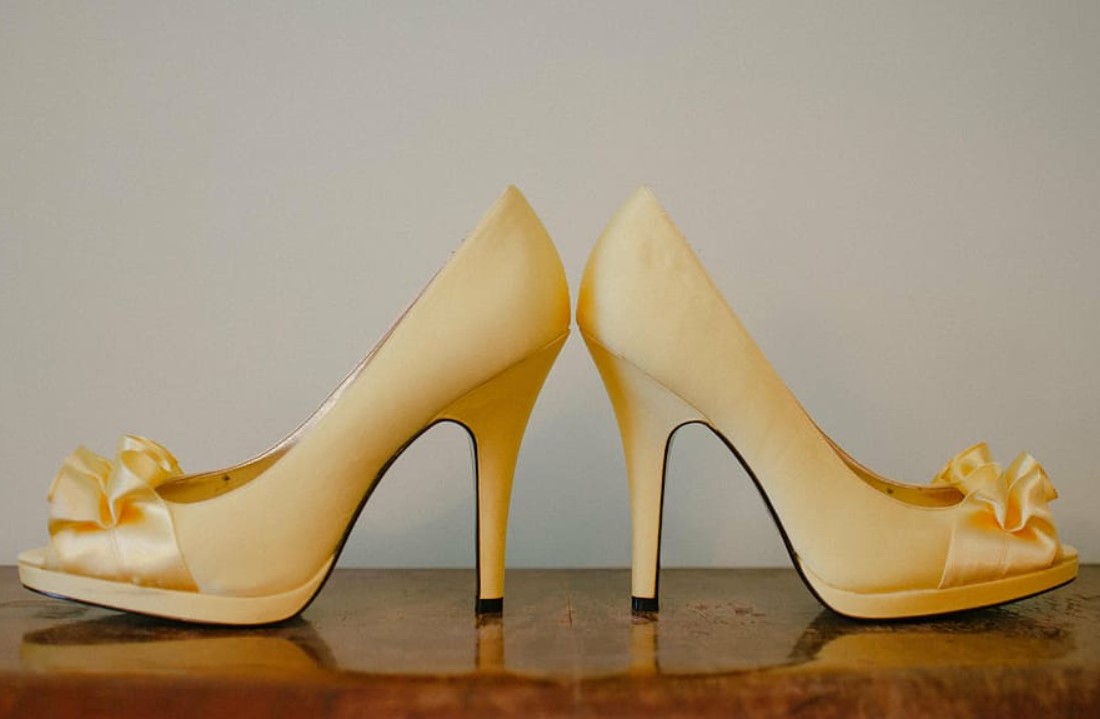Shoe styles usually focus on a simple silhouette and a conservative look, especially in the menswear sector. Little colour and not standing out seems to be the preferred approach, regardless of whether it is a pair of sneakers, brogues or boots. But some avant-garde footwear brands are challenging the norms of shoe design, with their innovative shapes, materials and concepts. Here are some labels to watch in the avant-garde shoe world.

Studio Hagel: Conceptual sneakers with a multifunctional twist
Studio Hagel is an experimental shoe design studio that was founded in 2015 by Mathieu Hagelaars. The Amsterdam-based studio develops and designs collections based on a concept that can be used multifunctionally. For example, one of its signature styles, The Shroud, features a removable fabric cover that can transform the sneaker into different looks.
Studio Hagel has worked for major sportswear and streetwear brands such as Off-White and Puma, as well as luxury brands such as Coach, Moncler, Valentino and Botter. The studio also offers two of its own sneaker styles, which are made with high quality materials and innovative sole technology. The sneakers are produced at Ecco in Portugal, where Hagelaars collaborates with the leather experts and craftsmen.
Hagelaars says: “In everything we do, we don’t settle for the ordinary. We try to challenge the rules of traditional shoemaking and create something new and unexpected.”
Demon Footwear: Post-industrial decadence meets high-tech hiking
Demon Footwear is a brand that was founded in 1963 by Girolamo Deon in Montebelluna, Italy, a region with a long tradition in the production of mountain sports shoes. The brand was revitalised in 2020 with a new vision by grandson Alberto Deon, who wanted to create avant-garde shoes that combine design, architecture and post-industrial decadence.
Demon Footwear uses materials and techniques that are typical for high-tech hiking shoes, such as Vibram soles, Gore-Tex membranes and Cordura fabrics. However, the brand gives them a new twist with angular silhouettes, dark colours and rough surfaces. The shoes are mostly handmade in Montebelluna, where only a few specialists have the knowledge and skills to carry out the complex steps.
Deon says: “I took over the brand founded by my grandfather in 1963 to create completely innovative shoes, a mix of design, architecture and post-industrial decadence while evoking the ancestors: a kind of ‘post-internet archaeology’ built in a pre-existing archive of materials and craft techniques, recovering archetypes and essential forms and reshaping them according to a new terminology dictated by new technologies, through the most extreme experiments that liberate the Italian aesthetic from the nostalgic image: Made in Italy can be ultra-contemporary – has to be.”
Rombaut: Vegan-oriented shoes with plant-based materials
Rombaut is a vegan-oriented shoe and accessories brand that was founded in 2013 by Belgian designer Mats Rombaut. The brand uses plant-based materials, recycled fibres and faux leather – including apples, pineapples, mushrooms and tree bark – to create shoes that are eco-friendly and cruelty-free. The brand also aims to raise awareness about the environmental and social impact of the fashion industry.
Rombaut’s shoes have a distinctive aesthetic that blends futuristic and organic elements. The shoes have unconventional shapes, such as cowboy boot-sneaker hybrids, chunky combat runners and Bernie Sanders low-tops. The shoes are often colourful and playful, with slogans, logos and graphics that convey the brand’s message and identity.
Rombaut says: “I want to show that it is possible to make shoes in a different way, without harming animals or the planet. I also want to challenge the perception of vegan shoes as boring or uncool. My shoes are fun, creative and expressive.”
Virón: Sustainable shoes with a streetwear edge
Virón is a sustainable shoe brand that was launched in 2020 by French designer Florian Dovillez. The brand is inspired by the street culture and music scene of the 1990s and 2000s, as well as the current environmental and social issues. The brand’s name is a combination of “virus” and “irony”, reflecting the brand’s attitude and vision.
Virón’s shoes are made with upcycled and organic materials, such as deadstock leather, hemp, cotton and cork. The shoes are also designed to be durable and repairable, with modular components and replaceable parts. The shoes have a streetwear edge, with chunky soles, bold colours and retro influences.
Dovillez says: “I wanted to create a brand that is relevant for today’s generation, that speaks their language and shares their values. I also wanted to make shoes that are not only sustainable, but also desirable and cool.”







